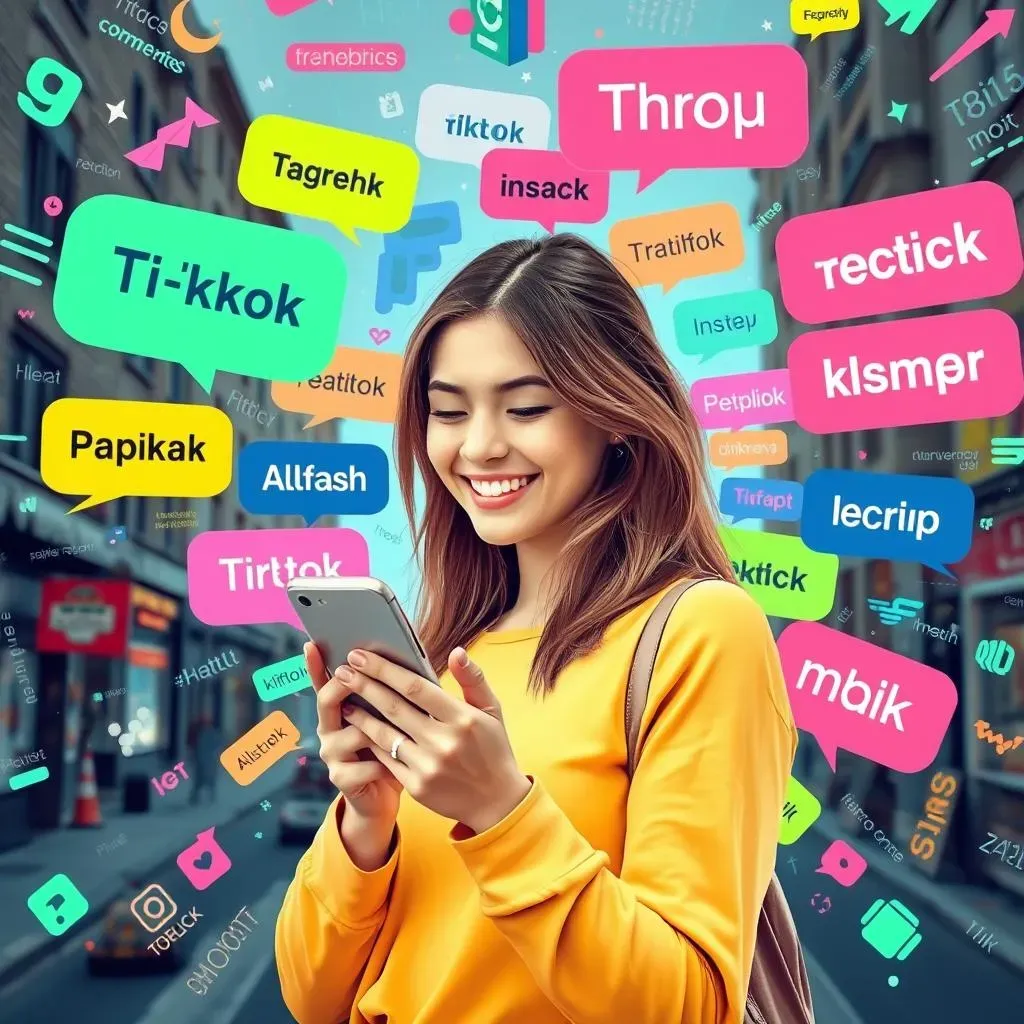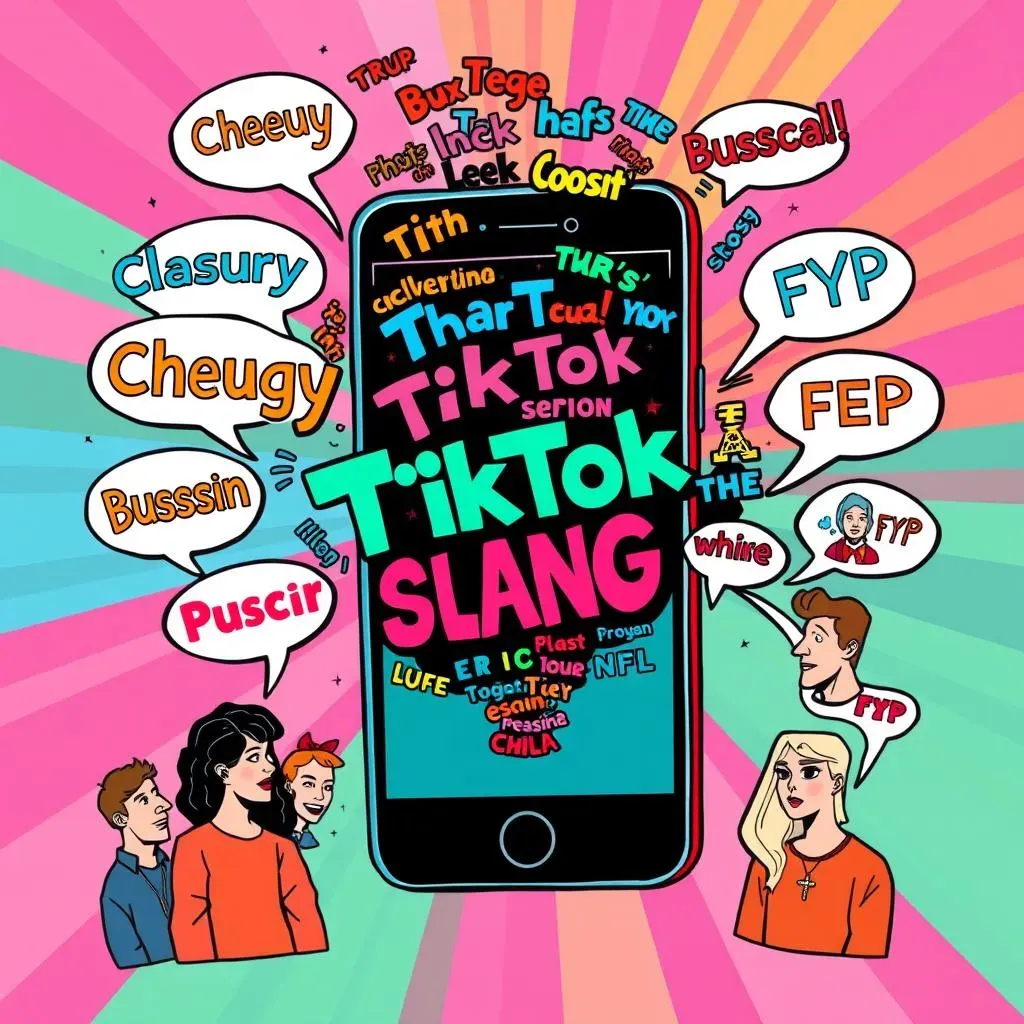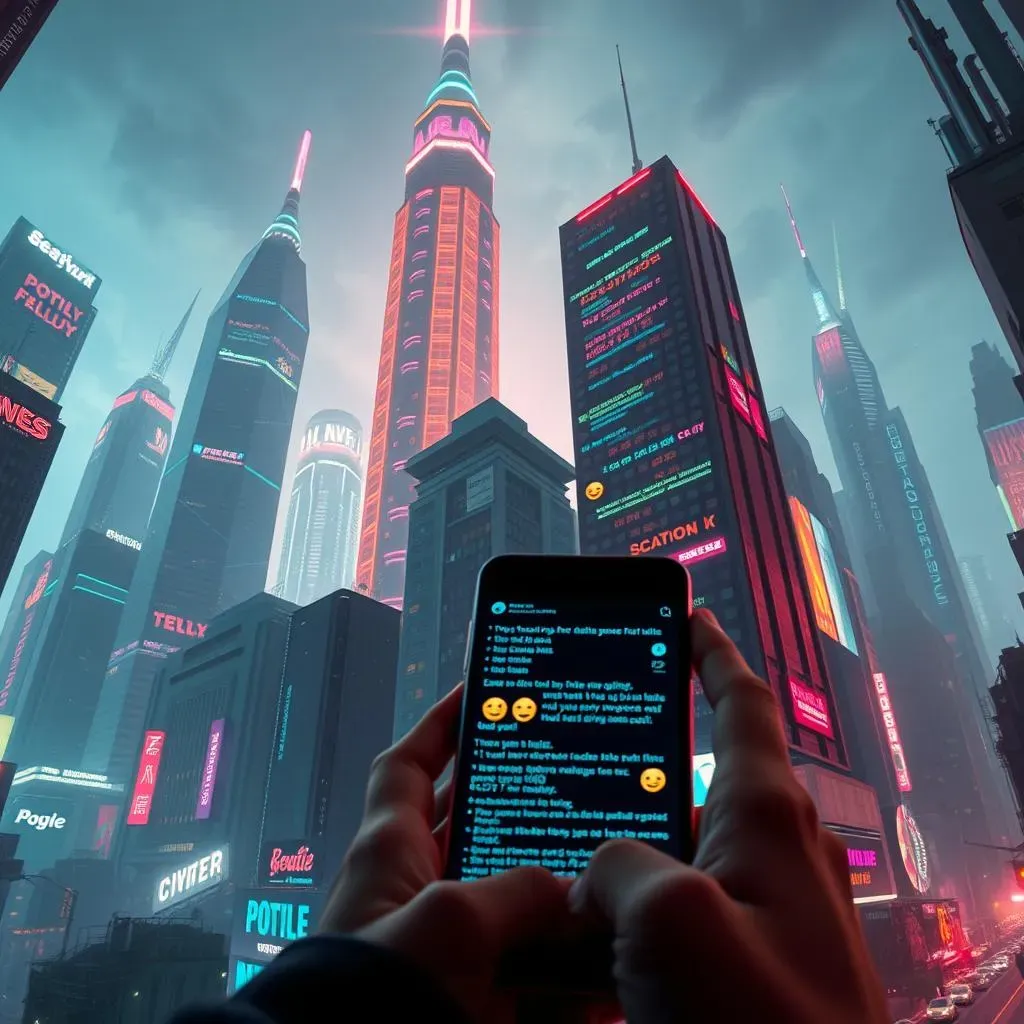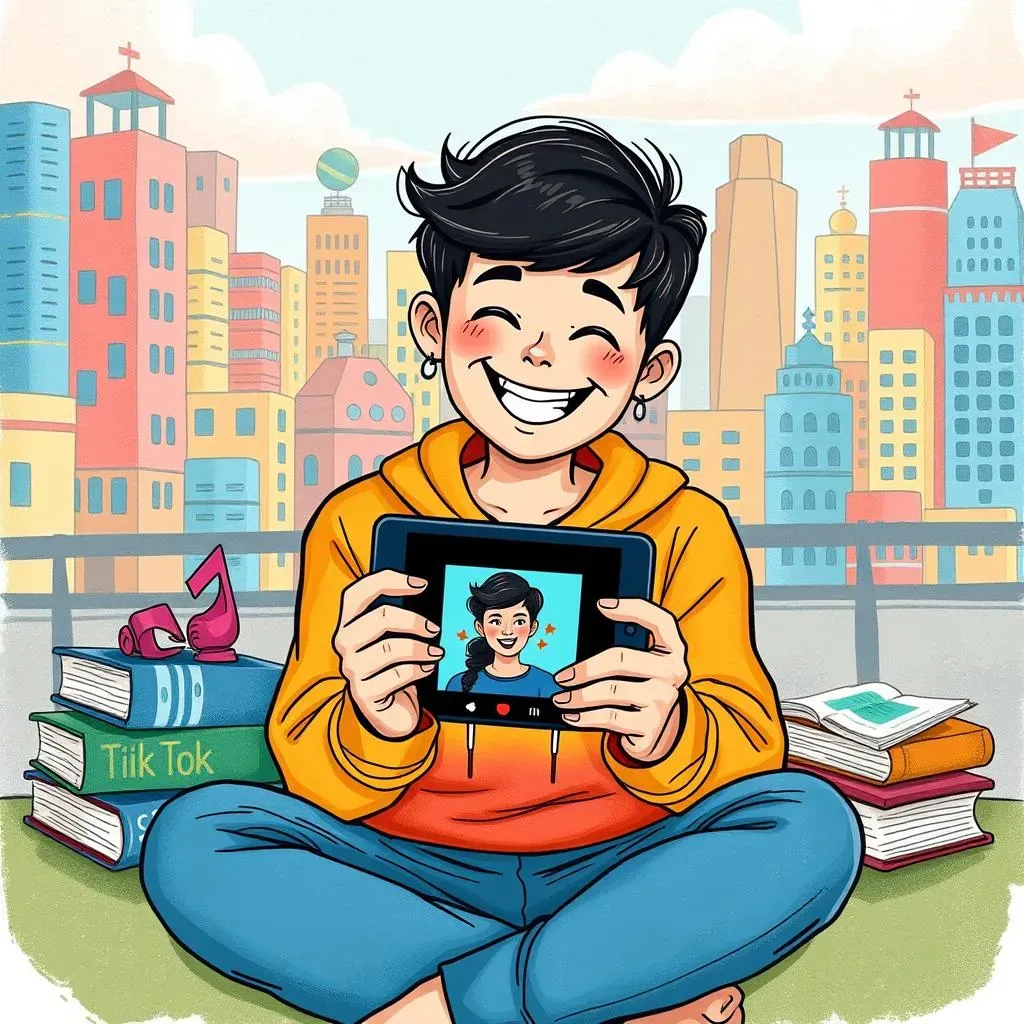Table of Contents
Ever scrolled through TikTok and felt like you’ve entered another dimension? It's not just the dances and funny videos; TikTok is quietly reshaping how we speak and learn English. This isn't your grandma's language class; we're talking about a digital revolution where slang is born, self-censorship gets a code name, and accents are shifting. Forget boring textbooks; TikTok is the new playground for language, and it's changing the game. We’ll explore how TikTok is influencing English vocabulary, with new words popping up faster than you can say "For You Page." We'll also look at the rise of "algospeak" - a clever way to dodge content filters, and how TikTok is impacting how we pronounce words. Finally, we'll discover how TikTok has become a surprisingly effective tool in language learning, making it easier than ever to engage with different languages. Ready to see how TikTok's influence has transformed the English language and the world of “TikTok language learning trends?” Let’s jump in.
TikTok's Impact on the English Language

TikTok's Impact on the English Language
The Rise of a Digital Dialect
Okay, so picture this: TikTok isn’t just a bunch of teenagers dancing to the latest pop song. It’s a global phenomenon, a cultural melting pot, and a language lab all rolled into one. This app, with its short-form videos, has become a breeding ground for new trends, ideas, and, most importantly, language. It’s like a giant, ever-evolving game of telephone, but instead of whispering secrets, we're sharing slang, memes, and new ways of speaking. It's wild how quickly something can go from a niche inside joke to a global catchphrase, all thanks to the TikTok algorithm. And I'm not just talking about kids these days, even big brands and news outlets are trying to understand it. It's a whole new way of communicating.
Think about it – before TikTok, how did new slang spread? Maybe through a TV show, or a song, or a small group of friends. Now, a single video can launch a word or phrase into the stratosphere, making it part of the global lexicon in a matter of days. This is not just about adding new words; it's about altering the way we construct sentences, the speed at which we talk, and even the very purpose of language. It’s like watching a living, breathing language transform in real time, and honestly, it’s both fascinating and a little bit terrifying. But mostly fascinating.
A Global Language Lab
TikTok's impact isn't just about slang, it’s about how language evolves. This platform is a unique space where different cultures and languages collide. You'll hear British slang mixed with American idioms, all while a K-pop song plays in the background. It's a chaotic, beautiful mess of linguistic influences, and it's changing the way we think about English. It's not just a single entity anymore; it's becoming a fluid, adaptable tool that is constantly being reshaped by its users.
And get this, because it's a video platform, it's also changing how we use English visually. Think about captions, text overlays, and the way people use gestures and facial expressions alongside their words. It’s like language has gone full multimedia. We're not just speaking; we're performing, we're expressing ourselves through a combination of words, sounds, and visuals. This has never happened before, and it's like we are witnessing the birth of a new form of communication.
Aspect of Language | TikTok's Influence |
|---|---|
Vocabulary | Introduction of new slang and terms |
Pronunciation | Changes in accent and speech patterns |
Structure | Impact on sentence structure and flow |
New Vocabulary: TikTok Slang and Beyond

New Vocabulary: TikTok Slang and Beyond
Okay, let's talk about the fun part: the actual words. TikTok is a breeding ground for new vocabulary, and it's not just random nonsense. We're seeing the birth of completely new words and the repurposing of old ones with fresh meanings. Think about terms like "cheugy" (which, by the way, is so 2021), or "bussin'" (which, if you're not careful, could get you some weird looks in a fancy restaurant). These words weren't in the dictionary a few years ago, and now they're part of everyday conversations for millions of people. It's like watching a secret language bloom in real time, and if you're not paying attention, you'll be completely lost.
And it's not just the slang; TikTok is also creating a new kind of vocabulary. It's like we're all playing a giant game of Mad Libs, constantly inventing new ways to express ourselves. We’re seeing the rise of shortened words, abbreviations, and emojis used as stand-alone sentences. It’s a wild west of language, and honestly, it's both baffling and brilliant. But the best part? These words don't stay on TikTok. They spill into our daily lives, into text messages, and even into the way we talk to our families. It's a linguistic takeover, and it's happening right under our noses. It's like TikTok is a giant word factory, churning out new terms faster than we can keep up.
TikTok Slang | Meaning |
|---|---|
Cheugy | Outdated or trying too hard |
Bussin' | Delicious or excellent |
FYP | For You Page |
SelfCensorship and Algospeak: A New Language

SelfCensorship and Algospeak: A New Language
The Need for Code
Alright, so here’s where things get a little sneaky. Ever noticed how some TikToks seem to be talking in code? That’s not an accident. It's because of something called algospeak. Basically, TikTok’s algorithms are designed to flag and remove content that violates their guidelines. Now, people are smart, and they found a way around this. They've started using coded language, euphemisms, and inside jokes to talk about sensitive topics without getting their videos taken down. It's like a digital version of a secret handshake, and it's fascinating to watch it evolve.
Think about it, instead of directly saying something that might get flagged, people use substitute words or phrases. It's like we're living in a digital version of a spy movie, where everyone is using code words and secret signals. This isn't just about avoiding censorship; it's about creating a community and a shared understanding. It's like we are creating a new language within a language, and it’s a testament to our ability to adapt and find ways to express ourselves, even when we're being watched.
Algospeak in Action
So, what does algospeak actually look like? Well, it's a mix of creative wordplay and intentional misspellings. For example, if someone wants to talk about a sensitive topic, they might use a substitute word that sounds similar or has a related meaning. It's like a game of linguistic charades, where you have to decode the message. And it’s not always the same code. Depending on the community and the topic, algospeak can be incredibly diverse, and sometimes, even confusing. It's like each subculture has its own dialect, and it's all happening on this one platform.
It’s not just about words; it's also about symbols and emojis. People use certain emojis to represent specific ideas or topics, and these symbols can evolve over time, creating a dynamic and ever-changing language. This form of communication is very clever, and the users are incredibly creative. It's like they are playing a game with the algorithm, trying to see how far they can push it before they get caught. It's a constant cat-and-mouse game, and it's shaping how we communicate online.
Original Term | Algospeak Term |
|---|---|
Sensitive Topic A | Substitute Word A |
Sensitive Topic B | Substitute Word B |
Sensitive Topic C | Emoji Combination |
The Impact of Self-Censorship
Now, let's be real, this self-censorship isn't just about avoiding the algorithm; it also impacts how we express ourselves. When we’re constantly thinking about what we can and can’t say, it can change the way we think. It’s like we are constantly walking on eggshells, trying to avoid stepping on the algorithm's toes. This can be both limiting and liberating. Limiting because we have to be careful about how we express ourselves, but liberating because it pushes us to think outside the box and find creative ways to get our point across.
This also means that TikTok is creating a generation of people who are used to communicating through coded language. It’s like they are fluent in two languages: regular English and algospeak. And this skill is not just limited to TikTok; it’s spilling over into other areas of their lives. It's like they are becoming masters of subtle communication, and it's going to be interesting to see how this affects the way they interact with the world in the future. It's a brave new world of communication, and we're all just trying to keep up.
TikTok as a Language Learning Platform

TikTok as a Language Learning Platform
The Unexpected Teacher
Okay, so who would have thought that an app known for dance crazes and viral challenges could also be a legitimate language learning tool? I know, it sounds crazy, but hear me out. TikTok is actually a goldmine for anyone looking to pick up a new language. It's not like those stuffy old textbooks; it's dynamic, it's engaging, and it's actually kind of fun. You're not just memorizing vocabulary lists, you're seeing how people actually use the language in real-life situations. Think about it – you can watch a video of someone ordering coffee in Spanish, or someone telling a joke in French, and it's all in bite-sized, easy-to-digest clips. It's like having a personal language tutor in your pocket, and it's way more entertaining than anything I remember from school. It's a total game-changer for language learners.
And it's not just about passively watching videos, you can actually interact with the content. You can comment, ask questions, and even create your own videos practicing what you've learned. It's like a virtual language exchange, where you can connect with people from all over the world who are also passionate about language. Plus, the algorithm is pretty clever, so the more you engage with language content, the more it will show you. It's like TikTok is secretly trying to make you multilingual, and honestly, I'm not complaining. It's a great way to immerse yourself in the language without having to book a flight to another country. It's like a virtual language vacation, and it's a lot cheaper too.
Learning Style | TikTok Benefit |
|---|---|
Visual Learning | Videos with real-life context |
Auditory Learning | Native speakers and varied accents |
Interactive Learning | Comments, questions, and content creation |
Beyond the Basics
But it's not just for beginners; TikTok is also great for more advanced learners. You can find content that focuses on specific grammar points, or videos that explore the nuances of different dialects. It's like a choose-your-own-adventure language learning experience, where you can pick and choose what you want to focus on. And because it's constantly changing, you're always being exposed to new words, phrases, and trends. It's like your language learning journey is always fresh and exciting, and it never gets boring. It's like TikTok is a never-ending language buffet, and you can sample whatever you want.
And let's not forget the cultural aspect. When you're learning a language, it's also important to understand the culture that goes with it. TikTok is a great way to get a glimpse into different cultures, see how people live, and learn about their customs and traditions. It's like a virtual window to the world, and it makes the whole language learning experience so much more meaningful. It's not just about memorizing words; it's about connecting with people and understanding their unique perspectives. It's like you're not just learning a language, you're learning about the world, and that's pretty awesome.